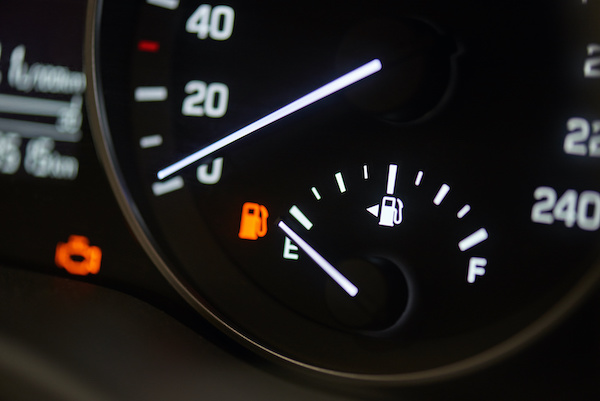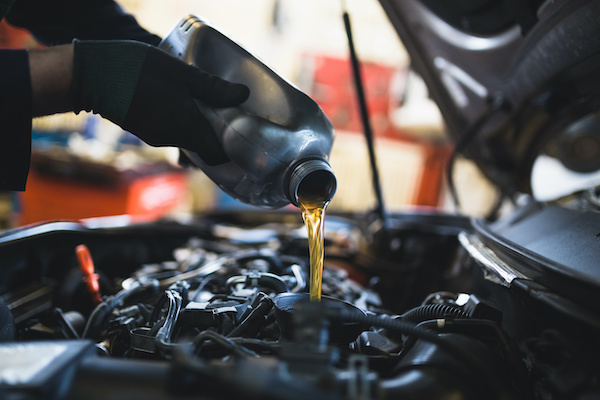Posted on 5/19/2021
.jpeg)
Shocks and struts are terms often used interchangeably because they perform the same function. However, they distinctly differ in suspension system design. It is worth noting that even though they perform the same function, a shock cannot be used to replace a strut and vice versa. Let's break down the primary functions of these two parts to differentiate them clearly. What are shock absorbers? Shocks are designed to absorb the shock impacts from the road. For this reason, they are designed to be a bit stiffer than struts. There are three main types of shocks: Monotube shock absorber: It is one of the most commonly used shock absorbers. It is made from steel with a piston and rod installed inside. When a vehicle runs over a bump, the piston exerts vertically and compresses slowly to ensure a smooth transition. Dual shock: A twin or dual shock has two vertical tubes filled with hydraulic fluid rather than gas. As it compresses ... read more
Posted on 4/23/2021
.jpeg)
Antifreeze, also referred to as coolant, is a mixture of ethylene glycol, lubricant, and inhibitors added to your car's radiator. A 50/50 dilution with water serves to maintain an even temperature within the engine, and this often colorful mixture enables your car to function optimally in both warm and cold conditions. Here's a breakdown of what antifreeze does in your vehicle. Prevents freezing As the name suggests, the antifreeze will prevent the water in your car's engine and radiator from freezing in cold weather conditions. Should the water in your radiator or engine freeze up, it may cause significant damage that will be costly to repair. Prevents overheating In hot weather, antifreeze prevents the water in the radiator and engine from boiling. Again, boiling water within the radiator will result in permanent damage and lead to overheating and failure of the engine itself. Lubricates Antifreeze contains lubricants that lubricate surfaces with which it comes into ... read more
Posted on 3/17/2021
.jpeg)
Transmissions are the true heart of your vehicle. They are responsible for the transmission of energy from the engine and down to the wheels. In short, a good transmission will run your vehicle well and smoothly, which is the very reason you are able to drive to begin with. That said, what is the purpose of a transmission flush? For starters, getting your transmission flushed should be done as a part of your routine preventive maintenance in order to stall the onset of major transmission problems in the future. You can prevent any problems that cost you well into the thousands and lead to eventual transmission failure. The latter is what can kill your car, so this simple bit of routine maintenance is definitely worth it. A thorough transmission flush is good for overall operative efficiency and can help keep your vehicle solvent for many years. In fact, transmission flushes will keep your engine running smoothly and efficiently. Transmission fluid is what can help keep individual eng ... read more
Posted on 2/18/2021

We've all been there; we get busy and forget to fill up the gas tank. Suddenly, the low fuel indicator comes on and you're not sure how far you can go. Of course, the rule of the thumb is to gas up if your tank goes below a quarter. Often, the older a person gets, the more they adhere to that rule because of learning the hard way that running out of gas is a major inconvenience. Not only are you in for possibly a long walk in awful weather, but running out of gas on the freeway or a blind turn is actually dangerous. Did you know you also run the risk of ruining your catalytic converter if you run out of gas? On average, the replacement cost is between $945 and $2475 (including parts and labor). And if you're one of those types that often runs on fumes, you're slowly damaging your fuel pump with repair running between $725 and $900, on average. The good news is that you probably have at least 25 to 30 miles left in the tank when the indicator light comes on. In ... read more
Posted on 1/21/2021

There are a lot of things that you can check on your vehicle to make sure they work well and you can drive safely on the road. However, some of the most important components that you must keep up on with any vehicle include: The Oil The oil is basically the lifeblood of your vehicle. Without it, your car engine will stop working. Oil is important for helping all the parts of the engine run smoothly so nothing gets locked up. Make sure that you get the oil replaced every six months, or every 3000 miles, whatever comes first. The Air Filter The air filter is important for making sure everything runs well in the vehicle. While it is easy to forget this part, if the air filter does get clogged up with dust and dirt, which it will if you drive the vehicle around much, then it will lower your gas mileage, cause the engine to run rough, and can slow down how fast you move around. Change the air filter often. The Brake Pads If these go out, you will find that stopping is very difficult ... read more